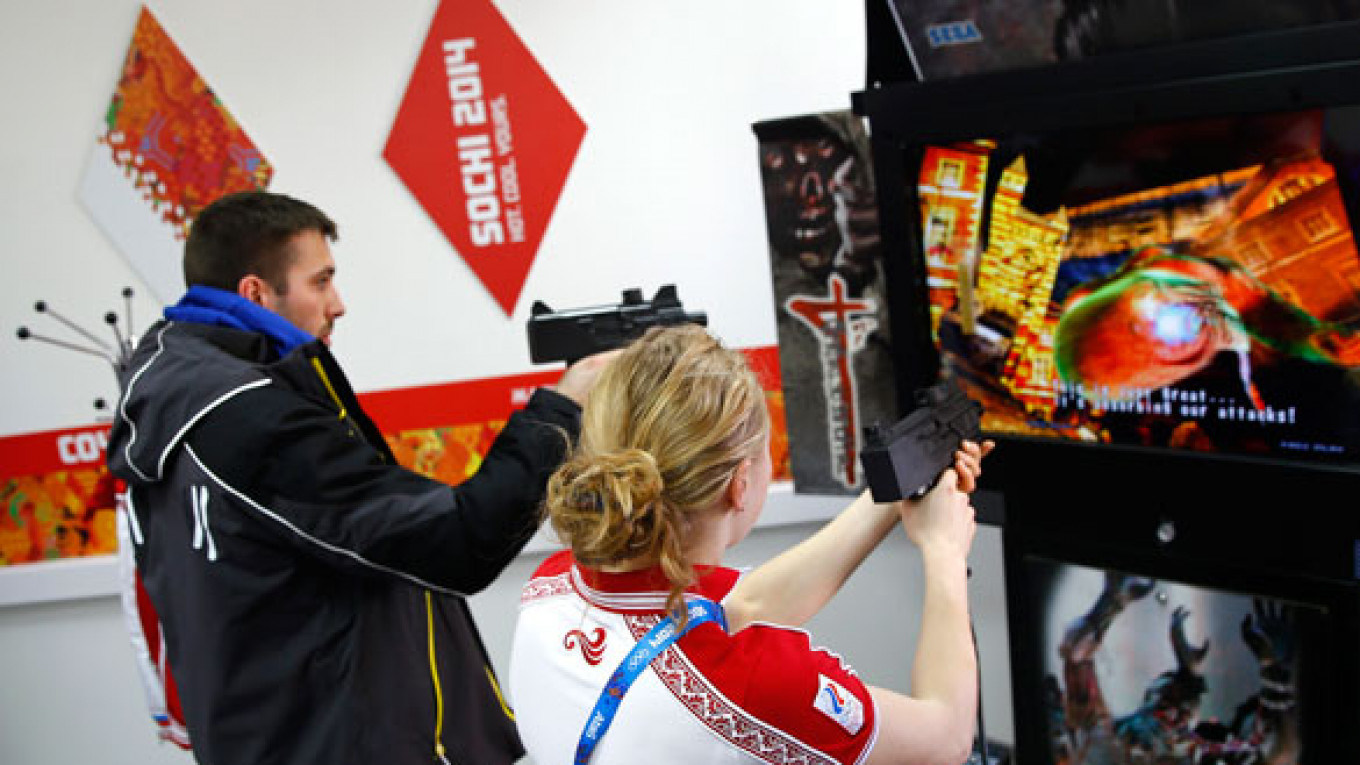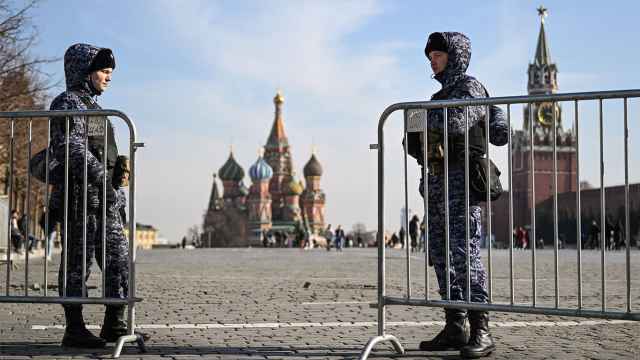ROSA KHUTOR — Russian alpine skier Yelena Yakovishina was busy killing zombies in the Olympic athletes' Mountain Village on Tuesday.
Her accuracy was excellent — a fact highlighted by the impressive score lit up in front of her as red-eyed ghouls stumbled relentlessly out of "The House of the Dead" and into her sights.
"I think we have been here for about an hour already," laughed her American physio, Park City-based Katie Guyer, as the athlete took aim and fired another hail of electronic bullets at the screen in the games room.
Elsewhere, Austrians were riding superbike simulators while U.S. athletes waited to race fast cars around the mean streets of another virtual world or challenge kickboxing villains on screen.
In one of the most secure locations on earth, a high-security village inside a "ring of steel" surrounding Sochi where tens of thousands of Russian soldiers are on high alert for possible terror attacks, the sight of athletes chilling out with video violence provided an ironic twist.
It was not the only surprise, with reporters given free access for a few hours on Tuesday to roam the facilities that will house nearly 3,000 of the world's elite athletes when all have arrived.
The , which has already had to deal with at least one snowboarder's broken collarbone, has a rock climbing wall extending up the front of it.
Heavy trucks filled with rubble occasionally thunder through, and there is dust in the crisp mountain air as preparations are completed.
And yet even if the finishing touches are absent in parts, it was hard to find anyone with a complaint to air.
Tight Security
"Security is really heavy, not used to that," said British halfpipe snowboarder Dom Harington, who was otherwise loving the village experience.
"Everything is really fine. The shower makes some water on the floor but they are going to fix this so it will be all good," said Canadian snowboarder Max Parrot.
"You have got to show your pass, like, every 100 meters but I think that is a good thing that they do this."
Hans Pum, sport director of the Austrian ski federation, smiled in the afternoon sunshine as he stood next to a giant set of Olympic rings.
"For the athletes it is OK. It is perfect," he told Reuters. "This is different. They built it new and in a very short time. I was here last summer and I did not think then that it would be open [in time] for the athletes."
"They have done a lot of work. I think they will be building the whole time the athletes are here."
Athletes questioned on their way to lunch in the cavernous restaurant — serving food to cater for all tastes, even if the pasta might not always be al dente enough for Italian teeth — had no gripes.
Irish snowboarder Seamus O'Connor, walking down the road with a laptop under his arm and past blocks decorated with national flags of teams staying in them, said everything was looking good so far.
"It is really nice here. The food is really good. I am accustomed to Russian food since my mom is Russian. So I like that," explained the teenager, who lives in the U.S.
"They definitely had to do a lot of work since the last time I was here last year but it seems like they got it all finished."
British slopestyle boarder Billy Morgan gave the catering a rave review.
"There is lots of it, so I am happy," he grinned. "The fish is good. I try and eat as much fish as I can. It is always really expensive but as it is free, I am just eating loads of it."
Security checks and transport are regular sources of aggravation at any Olympics but, with the slopes a short walk away, that hassle had been reduced.
Morgan's only disappointment, if there was one, was to find no trace so far of the kind of 'double toilet' that went viral on the internet after a photograph was taken by a reporter at one of the venues.
"That is awesome. I am going to go and find it," he grinned.
A Message from The Moscow Times:
Dear readers,
We are facing unprecedented challenges. Russia's Prosecutor General's Office has designated The Moscow Times as an "undesirable" organization, criminalizing our work and putting our staff at risk of prosecution. This follows our earlier unjust labeling as a "foreign agent."
These actions are direct attempts to silence independent journalism in Russia. The authorities claim our work "discredits the decisions of the Russian leadership." We see things differently: we strive to provide accurate, unbiased reporting on Russia.
We, the journalists of The Moscow Times, refuse to be silenced. But to continue our work, we need your help.
Your support, no matter how small, makes a world of difference. If you can, please support us monthly starting from just $2. It's quick to set up, and every contribution makes a significant impact.
By supporting The Moscow Times, you're defending open, independent journalism in the face of repression. Thank you for standing with us.
Remind me later.






